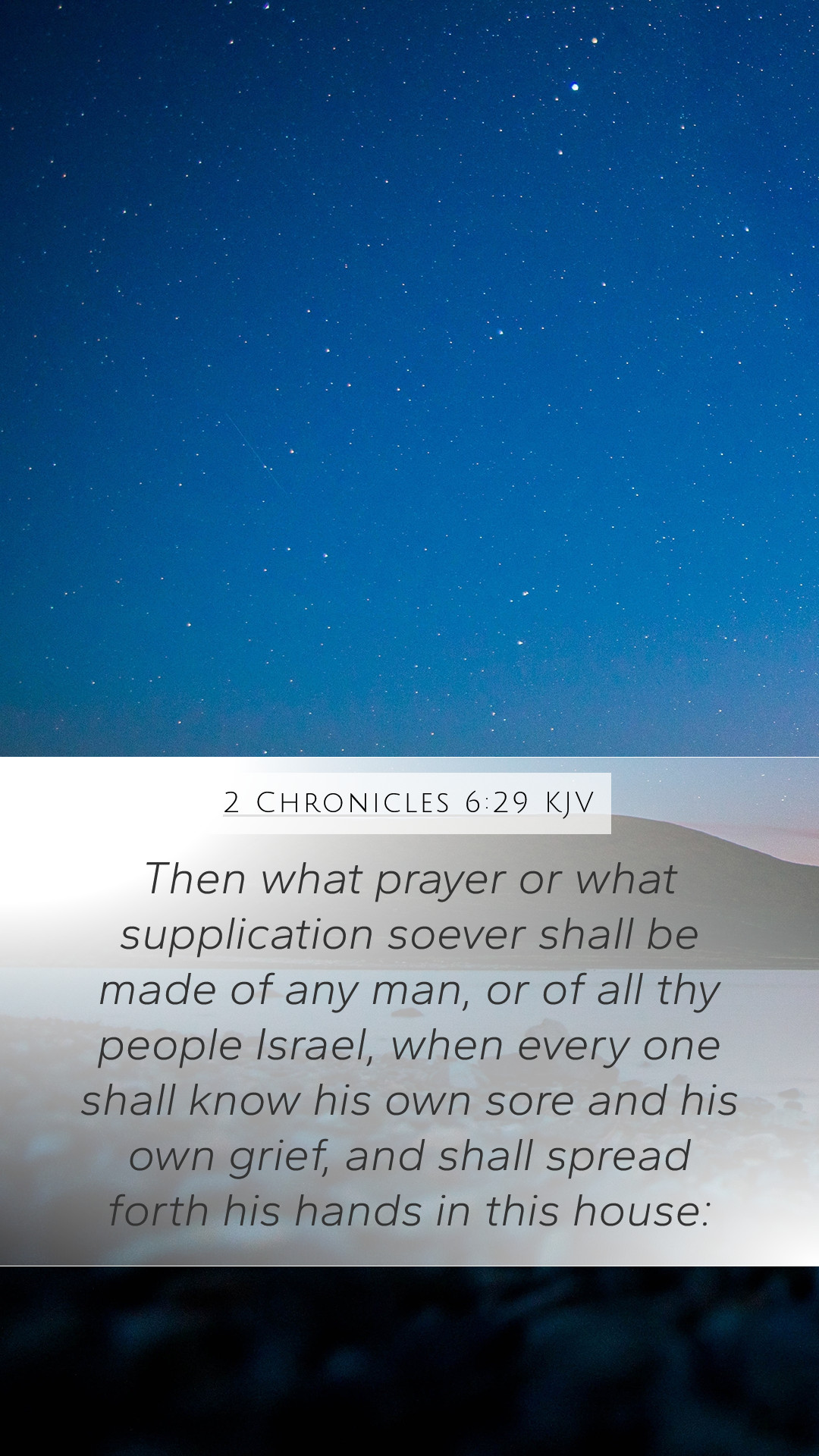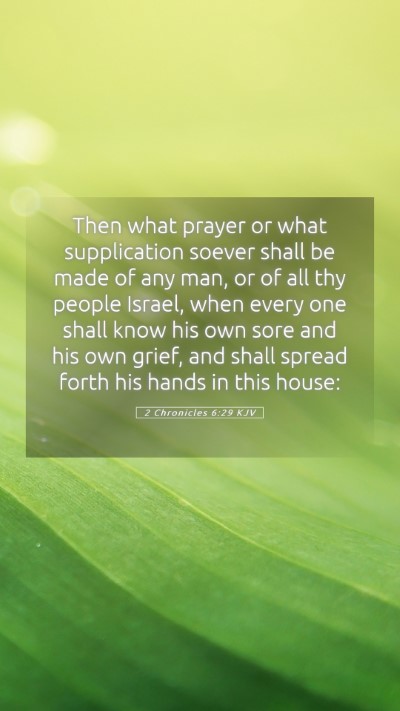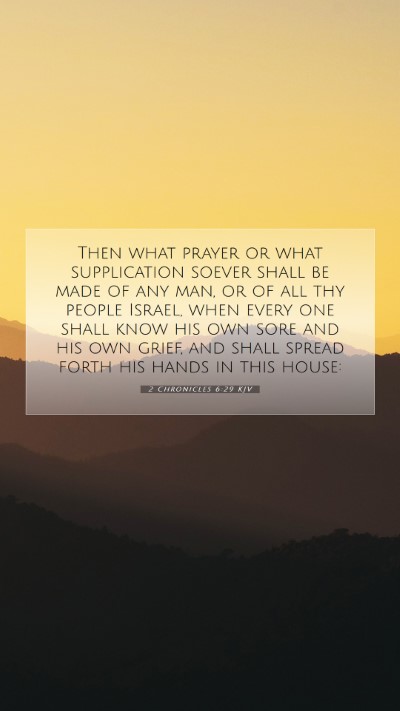Understanding 2 Chronicles 6:29
Verse: “Then what prayer or what supplication soever shall be made of any man, or of all thy people Israel, when every one shall know his own sore and his own grief, and shall spread forth his hands in this house:” (2 Chronicles 6:29, KJV)
Overview of the Verse
This verse is a part of Solomon's prayer of dedication for the newly constructed Temple in Jerusalem. Here, Solomon emphasizes the importance of prayer and supplication, particularly in relation to the grief and afflictions that individuals may experience. The physical act of spreading one's hands symbolizes a heartfelt plea towards God, indicating both humility and earnestness.
Commentary Insights
-
Matthew Henry:
Henry elaborates on the significance of personal grief in this context, asserting that God is approachable in times of distress. He indicates that all prayer, regardless of the individual's status, is welcomed by God, pointing to the universal need for divine mercy and intervention.
-
Albert Barnes:
Barnes focuses on the broader implications of Solomon's statement, highlighting that prayer in the Temple signifies a communal approach to God, enhancing the nation’s identity as a people who seek divine guidance. He emphasizes that knowledge of personal suffering is key to authentic prayer.
-
Adam Clarke:
Clarke emphasizes the need for sincerity and genuine intention in prayer. He suggests that the act of spreading forth one’s hands represents an offering to God—acknowledging personal limitations and seeking His help and grace.
Thematic Elements
- The Importance of Prayer: The verse underscores the vital role of prayer in the life of believers, especially during times of trial and affliction.
- God's Accessibility: It conveys the message that God is always accessible, regardless of the circumstances that individuals find themselves in.
- Personal Reflection: The verse encourages individuals to reflect on their own pain and seek God earnestly through prayer.
Biblical Exegesis and Application
The essence of this verse is that God invites both individual and collective cries for help. In understanding Scripture, it becomes apparent that each person's struggles are significant and worthy of divine attention. The phrase "spread forth his hands" illustrates a posture of vulnerability and longing for divine intervention.
For those engaging in Bible study groups or online Bible study sessions, this verse serves as a powerful reminder of the connection between personal suffering and communal prayer. It encourages believers to create a culture of openness where individuals can share their troubles without fear, fostering a supportive environment.
Cross References
- 1 Kings 8:38-39: Discusses prayer directed towards God in the Temple during times of affliction.
- Psalms 28:1: The psalmist reflects on the importance of God’s responsiveness to the prayers of the faithful.
- Matthew 7:7: Jesus encourages believers to ask, seek, and knock, reinforcing the act of seeking God through prayer.
Conclusion
In essence, 2 Chronicles 6:29 encapsulates the heart of prayer as both a personal and communal act of reaching out to God. Whether through personal reflection or in Bible study resources, this verse invites believers to approach their Creator genuinely, especially in times of grief. The beauty of Scripture lies in its ability to provide guidance and support, applicable to both ancient and modern contexts. Understanding Scripture requires a blend of personal introspection and communal sharing, leading to meaningful Bible study insights and deeper biblical exegesis.


